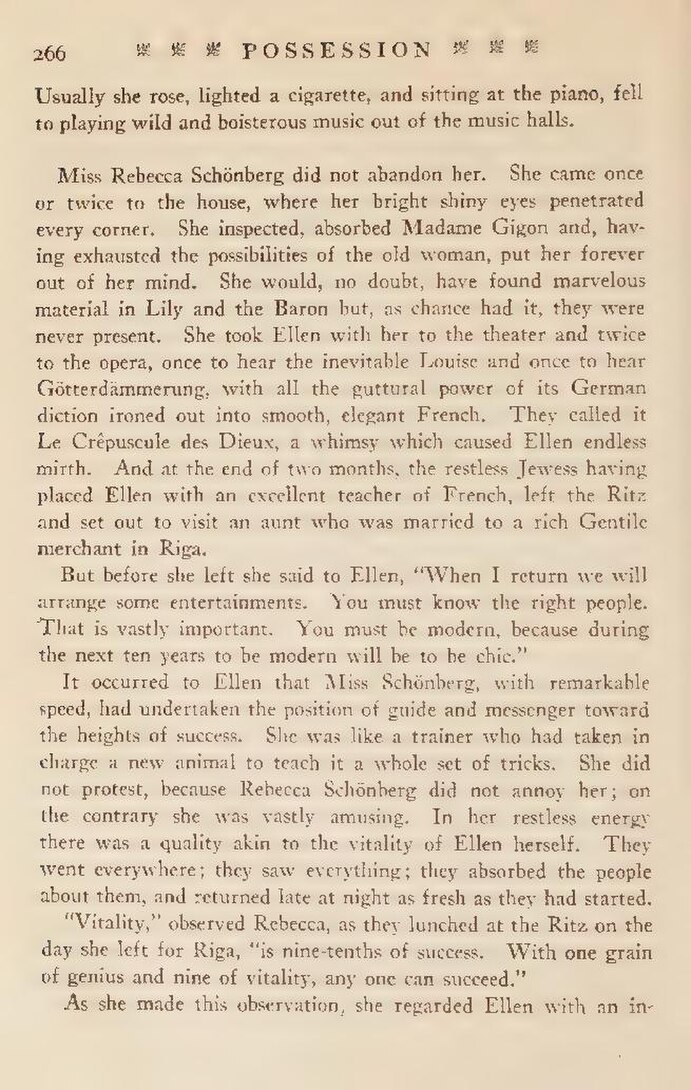Usually she rose, lighted a cigarette, and sitting at the piano, fell to playing wild and boisterous music out of the music halls.
Miss Rebecca Schönberg did not abandon her. She came once or twice to the house, where her bright shiny eyes penetrated every corner. She inspected, absorbed Madame Gigon and, having exhausted the possibilities of the old woman, put her forever out of her mind. She would, no doubt, have found marvelous material in Lily and the Baron but, as chance had it, they were never present. She took Ellen with her to the theater and twice to the opera, once to hear the inevitable Louise and once to hear Götterdämmerung, with all the guttural power of its German diction ironed out into smooth, elegant French. They called it Le Crêpuscule des Dieux, a whimsy which caused Ellen endless mirth. And at the end of two months, the restless Jewess having placed Ellen with an excellent teacher of French, left the Ritz and set out to visit an aunt who was married to a rich Gentile merchant in Riga.
But before she left she said to Ellen, "When I return we will arrange some entertainments. You must know the right people. That is vastly important. You must be modern, because during the next ten years to be modern will be to be chic."
It occurred to Ellen that Miss Schönberg, with remarkable speed, had undertaken the position of guide and messenger toward the heights of success. She was like a trainer who had taken in charge a new animal to teach it a whole set of tricks. She did not protest, because Rebecca Schönberg did not annoy her; on the contrary she was vastly amusing. In her restless energy there was a quality akin to the vitality of Ellen herself. They went everywhere; they saw everything; they absorbed the people about them, and returned late at night as fresh as they had started.
"Vitality," observed Rebecca, as they lunched at the Ritz on the day she left for Riga, "is nine-tenths of success. With one grain of genius and nine of vitality, any one can succeed."
As she made this observation, she regarded Ellen with an in-
